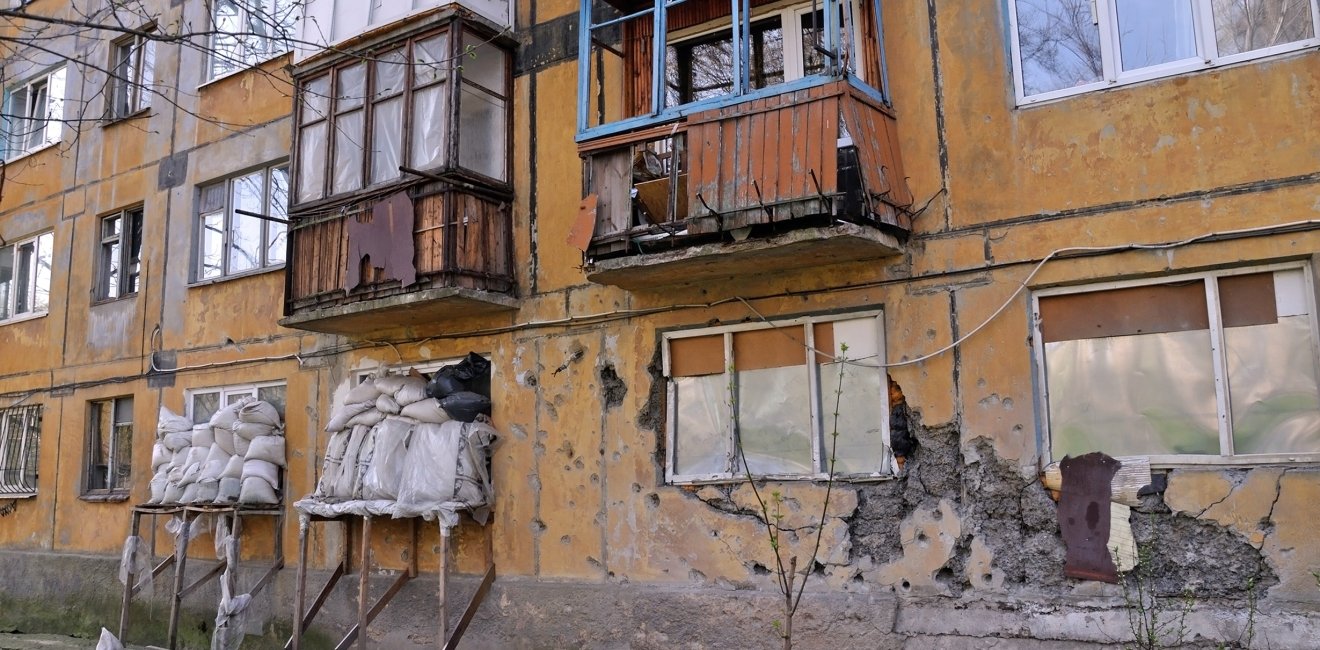
A blog of the Kennan Institute
BY NATALIYA GUMENYUK
This Thursday, February 17, more than thirty towns in eastern Ukraine were shelled right before and after the meeting of the UN Security Council dedicated to the situation in Ukraine.
Despite criticism that the latest ceasefire negotiated in the Donbas didn’t hold, with an uptick in hostilities beginning in January 2021, the population residing in multiple towns along the 421-kilometer line of separation had a more secure life, as shelling was sporadic.
These days, while visiting Chasiv Yar (which hosts the Joint Operational HQ of the General Staff of the Ukrainian army), Sloviansk in Donetsk oblast, and places right on the front line in Luhansk oblast, I saw local populations were largely calmer than people in the capital. The local residents know how to act during a shelling, and they appreciate the international attention that is focused on them these days. Before, the war was there, but nobody cared.
Among the Donbas communities in the government-controlled territories are those who remain skeptical of the West, consume Russian media, and believe it’s the United States that provokes a worsening of the current situation. Still, they are not waiting to welcome Russian troops. And they are in denial mode: “Russia can’t attack us.”
I spent considerable time in the East in the early stages of the war in 2014–15 and was on the line of conflict when the Minsk accords were signed in 2015. In those days, everything was closed and under siege. Today I see open shops, cafés, good roads. Near the checkpoints there are nice modern administrative centers with all the relevant facilities and vaccination points. This reflects President Zelensky’s policy to make the life of the Donbas population better and earn the residents’ sympathy. Though some complain about discomforts here, for visitors like me the difference from 2014–15 is drastic. Today life in the Donbas is much more bearable.
These days I talk to the locals a lot, and they’re unanimous: they want to avoid fighting unless there is no other option and it becomes a necessity. As for those who left occupied Donbas in 2014, this time they won’t flee.
I see that they feel secure and fragile at the same time: the front line is more fortified than the Russian-Ukrainian border. Yet it’s they who would be exposed to the worst that a war would bring.
My biggest observation is the strength of the local civil society. The Donbas is the Ukrainian rust belt. For a while, people who were left behind and without work when factories closed were considered to have paternalistic values, passive citizens who were disinclined to be politically active and would support local patrons. Eight years of war and dire circumstances changed them and forced them to self-organize. Even if some of the most patriotic activists are concerned that pro-Russian sentiment remains high among the local residents, in various Donbas towns when I meet with professionals I see a strong bond between the local activists (they could be local doctors, farmers, teachers), authorities, and the military. If something happens, they are prepared to act; they know whom and how to help.
I dare say that today, eastern Ukraine is the most resilient part of the country.
The opinions expressed in this article are those solely of the authors and do not reflect the views of the Kennan Institute.
Author


Kennan Institute
After more than 50 years as a vital part of the Wilson Center legacy, the Kennan Institute has become an independent think tank. You can find the current website for the Kennan Institute at kennaninstitute.org. Please look for future announcements about partnership activities between the Wilson Center and the Kennan Institute at Wilson Center Press Room. The Wilson Center is proud of its historic connection to the Kennan Institute and looks forward to supporting its activities as an independent center of knowledge. The Kennan Institute is committed to improving American understanding of Russia, Ukraine, Central Asia, the South Caucasus, and the surrounding region through research and exchange. Read more

Explore More in Focus Ukraine
Browse Focus Ukraine
Talking to the Dead to Heal the Living

Ukrainian Issue in Polish Elections


